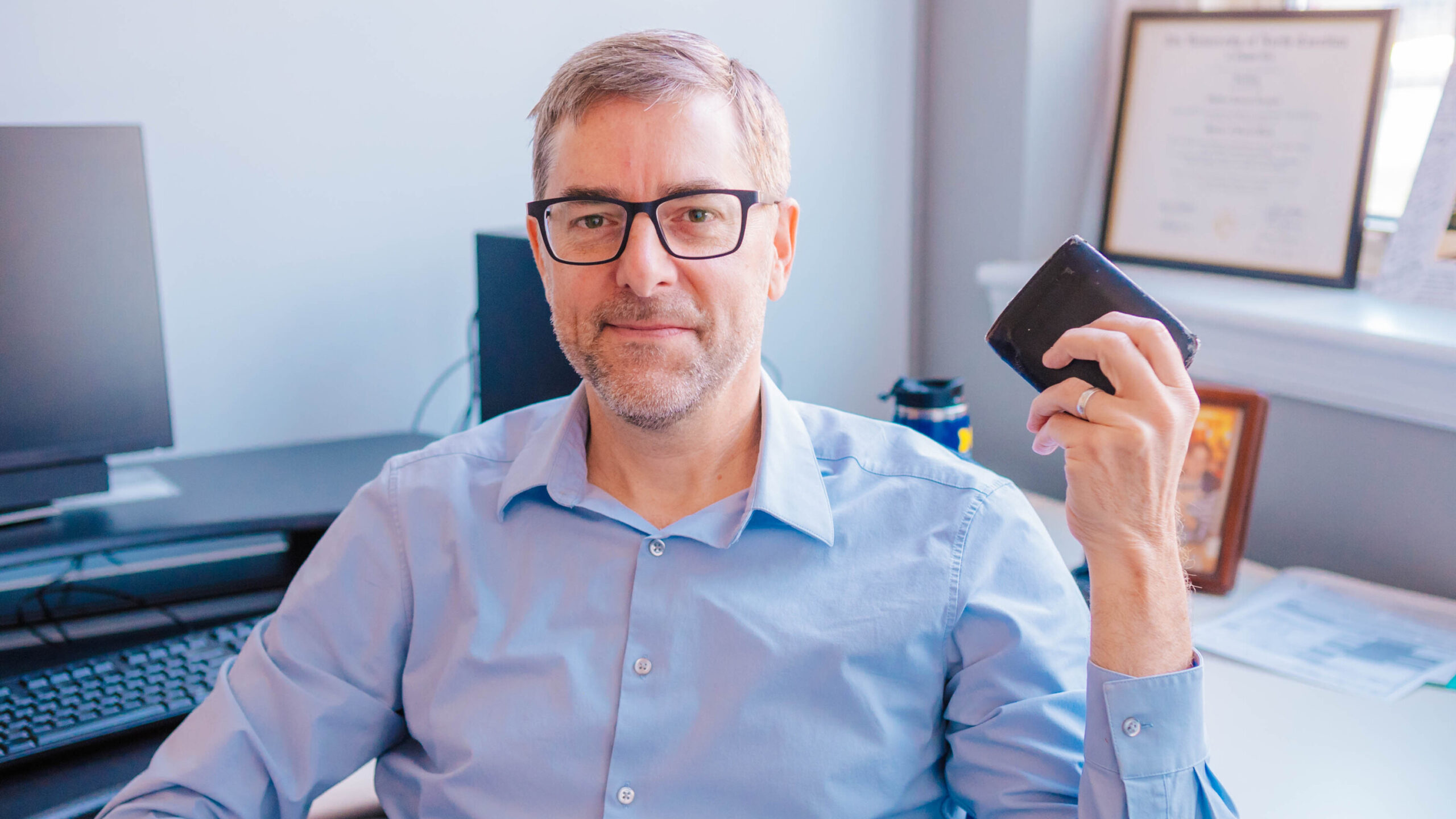Dr. Mathieu Despard wants to understand and address the barriers that prevent Americans from reaching their financial goals: a goal fueled by his past working as a social worker.
Before entering academia, Despard held diverse roles that gave him a glimpse into everyday financial challenges, including managing a free clinic, starting financial empowerment programs for lower-income families, and assisting lower-income persons living with HIV.
“I saw firsthand what people were up against with our economic system,” says Despard, who is a faculty member in in UNCG’s Department of Social Work. “I wanted to do research that was very practical with respect to figuring out, ‘How can we help all people be financially secure?’”
He explores topics that directly touch many Americans, from credit scores to financial wellness programs. Recently, he has co-authored two studies about how gig workers and frontline health care workers were impacted financially during the COVID-19 pandemic – a line of research he says is relevant long-after the pandemic has ended.
“The immediate stress and difficulties associated with the pandemic may have abated. Yet, the fundamental issues around financial security remain,” he says.
Unexpected financial strain for frontline health care workers
Many frontline health care workers in the United States experienced food insecurity and other significant financial challenges during the COVID-19 pandemic, according to a recent study led by Despard and published in Compensation & Benefits Review.
Despard says he and his collaborators – Dr. Haotian Zheng and Sophia Fox-Dichter at Washington University in St. Louis – were surprised by their findings, especially their discovery that a higher salary did not necessarily shield a health care worker from financial insecurity.
“You can be a frontline health care worker with a college degree making decent money within health care, but that does not mean that you’re not going to have problems like trouble paying your rent,” Despard says.
Among 2321 frontline health care workers, whose incomes ranged from less than $25k to over $75k, a third experienced food insecurity, a fifth had difficulty paying their bills and medical care hardship, and a quarter experienced housing hardship.
Despard says multi-pronged pressures contribute to health care workers’ financial difficulties across salary ranges. “Income only tells part of the story,” he says. “We’re talking about people who may be struggling with student debt, childcare, and unaffordable housing.”
The researchers also investigated an often-overlooked factor in assessments of financial wellbeing: workers’ access to benefits.
“When we have this conversation about a living wage, we tend to think in terms of pay,” Despard says. “We tend not to think in terms of the number and quality of benefits, yet benefits are 31% of total compensation.”
The researchers examined whether access to a variety of benefits – including health insurance, paid time off, and retirement – were related to nine different measures of financial insecurity.
Their results indicate that frontline health care workers’ access to benefits is strongly related to financial insecurity, with workers with less access to benefits having higher levels of financial insecurity, even when controlling for income.
The relationship between benefits and financial insecurity was strongest among health care workers without a college degree who work in private duty settings, such as home health aides.
Despard says these findings have key implications for both employers and employees. By providing ample benefits, employers can help mitigate health care workers’ financial insecurity. Health care workers on the job market can also heed these findings by closely considering not only a job’s salary but also the benefits.
“The takeaway is workers need to pay attention to benefits, not just pay,” Despard says. “But employers need to do a much, much better job of making all of that information more transparent and easier to understand.”
Gig workers may get short end of the financial stick
Many gig workers experienced financial hardships during the COVID-19 pandemic, including food insecurity and trouble paying bills, according to a recent study published in Work and Occupations.
“In a nutshell, our study shows gig workers were harmed more by the COVID-19 pandemic than other workers,” says Despard, who co-authored the study.
Despard – who collaborated closely with first author Daniel Auguste at Florida Atlantic University and co-author Stephen Roll at Washington University in St. Louis – said the findings challenge the popular premise in the United States that gig work provides a sustainable alternative to traditional employment.
These results suggest that gig working can make it tricky for these individuals to make financial ends meet, said Despard.
“We have this very romantic narrative in this country that we’re the land of opportunity. If you want to start your own business, you can go for it. But when you peel that narrative back, you begin to realize that people who are doing gig work are often struggling for economic survival.”
The scientists found that about 33% of surveyed gig workers experienced food insecurity, 12% had skipped housing payments, and 33% had unpaid credit card findings between April 2020 and June 2021. Economic hardships were more pronounced for gig workers who had children, those with less savings, and those who worked multiple gig jobs.
Their findings are relevant to the approximately 15% of Americans who have gig worked at some point, according to the PEW Research Center.
A strength of the new study is the robust sample of gig workers, says Despard. The Social Policy Institute at Washington University in St. Louis’s Socioeconomic Impacts of COVID-19 Survey includes responses from 4,756 workers from a range of ages, income, genders, and race and ethnicities. Approximately 29% of respondents had engaged in gig work in the three months before they were surveyed.
As part of his work to improve the financial wellbeing of Americans, Despard is active as a policy analyst and engages with the media, with the goal of putting his findings in front of decision makers. His research about the financial impacts of COVID-19 was recently cited in an amicus brief that was part of the Supreme Court’s review of the Biden administration’s student debt relief plan.
“The bottom line is that it should not be that difficult for people to meet their basic needs because it has a toll on their mental health, a toll on their physical health, and it takes time away from their families,” Despard says.
Story by Rachel Damiani
Photography by Sean Norona




